Compilation of English housing vocabulary
Have you ever wondered what household items and rooms you live in are called in English? If not, in this article PREP will provide you with a list of housing vocabulary along with illustrative images to easily visualize!
I. What Is Housing Vocabulary?
Housing vocabulary refers to a group of English words and phrases related to homes, living spaces, and everyday life in a residential environment. This includes terms that describe different types of housing, rooms and spaces inside a home, furniture and appliances, as well as common actions or situations related to where people live.

Understanding this vocabulary is essential because it appears frequently in both daily communication and English proficiency exams. You may encounter housing-related questions in:
- IELTS Speaking (e.g., “Do you live in a house or an apartment?”)
- Written descriptions or essays about urban life, housing problems, or preferences
- Conversation practice, such as talking about where you live, your neighborhood, or describing household routines
Mastering housing vocabulary helps learners speak and write more confidently when discussing topics such as renting a flat, describing a home to a visitor, or comparing housing types. It’s also one of the most relevant and practical topics for learners aiming to use English in real-life settings—from casual conversations to formal interviews or academic tests.
II. Housing Vocabulary Word List
Building a strong foundation of housing-related vocabulary allows English learners to describe living spaces clearly and naturally. Below is a categorized word list covering the most common and useful terms about types of housing, rooms, furniture, and daily living situations.
1. Types of homes and housing
When talking about accommodation, being able to describe different types of homes clearly is a key part of English fluency. Below is a list of commonly used vocabulary for housing types, followed by example sentences to show real-world usage.
|
Vocabulary |
Meaning |
Illustrative images |
|
Apartment |
A self-contained housing unit in a larger building. |
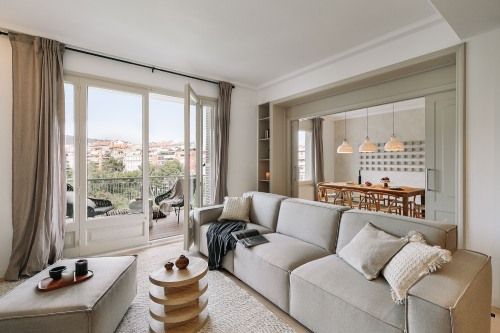 |
|
Bungalow |
A one-story house, often found in suburban or rural areas. |
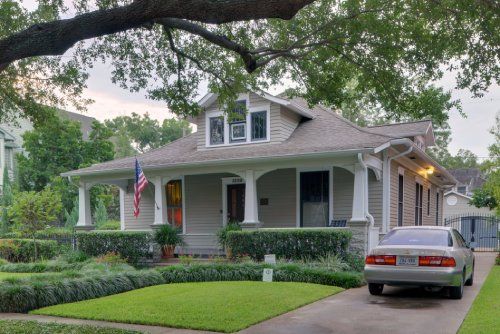 |
|
Detached house |
A stand-alone house not connected to any others. |
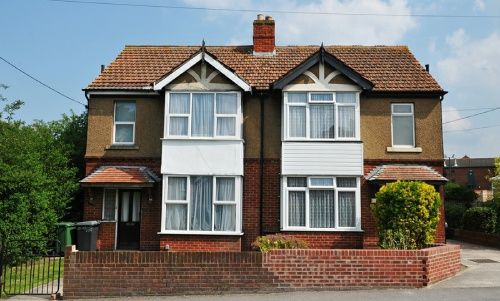 |
|
Semi-detached house |
A house joined to another on one side only. |
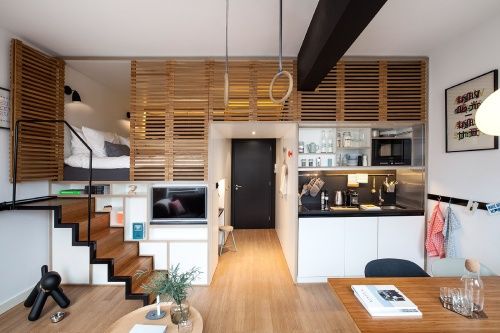 |
|
Studio flat |
A small living space where the bedroom, living room, and kitchen are in one room. |
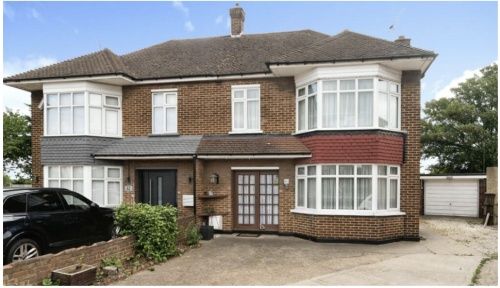 |
|
Terraced house |
A row of identical or mirror-image houses sharing side walls. |
 |
|
Cottage |
A small, usually countryside house with traditional charm. |
 |
|
Villa |
A large, often luxurious house, sometimes found in vacation areas. |
 |
Example Sentences:
- I live in a semi-detached house with my parents and two siblings.
- She moved into a studio flat after graduating from university.
- Their bungalow is surrounded by a beautiful garden.
- Renting an apartment in the city center can be quite expensive.
2. Rooms and areas in a house
Knowing the names and functions of different areas in a house is essential for describing your living space clearly. This vocabulary often appears in Speaking Part 1 of the IELTS exam, as well as in everyday conversations.
|
Vocabulary |
Meaning |
Illustrative images |
|
Living room |
The main room for relaxing and entertaining guests. |
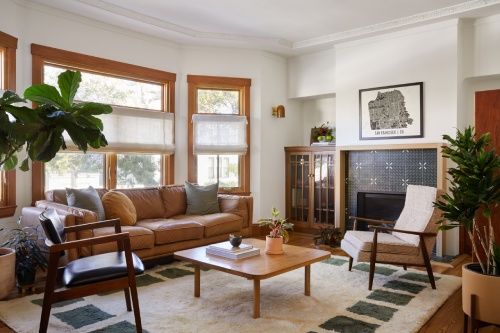 |
|
Bedroom |
A room where people sleep. |
 |
|
Kitchen |
Where food is prepared and sometimes eaten. |
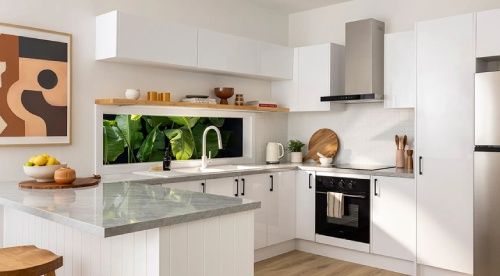 |
|
Bathroom |
A room containing a toilet, sink, and usually a shower or bathtub. |
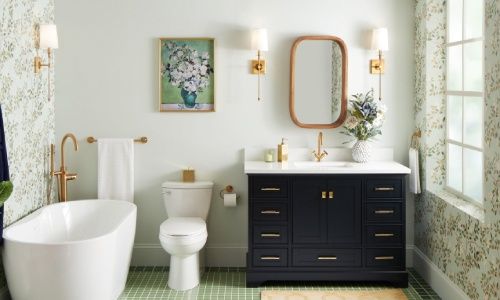 |
|
Dining room |
A space used for having meals. |
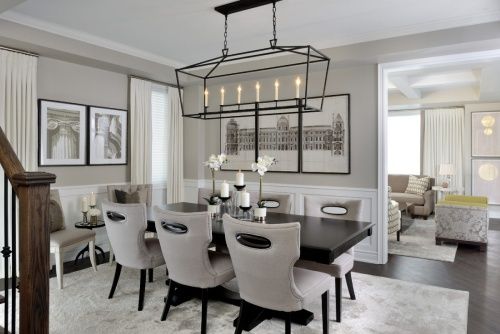 |
|
Hallway |
A corridor or passage between rooms. |
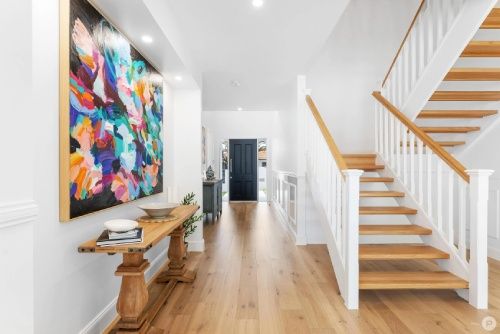 |
|
Attic |
The top space of a house, often used for storage. |
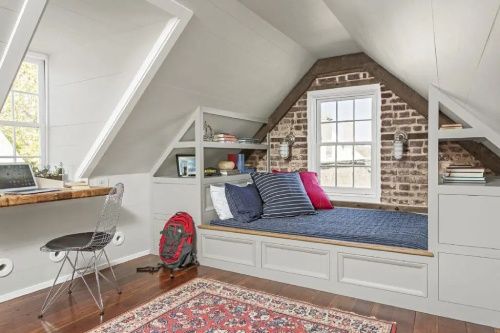 |
|
Basement |
A room or space below the ground floor. |
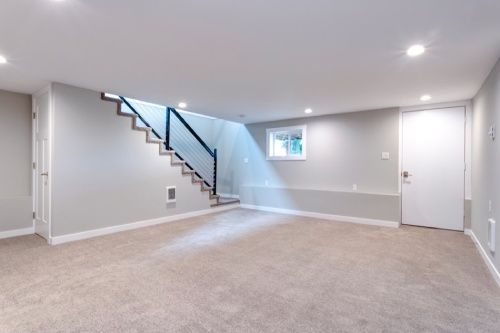 |
|
Balcony |
A small outdoor space attached to an upper-floor apartment or house. |
 |
Example Sentences
- We spent most of the evening chatting in the living room.
- His bedroom has a great view of the city skyline.
- The kitchen is open-plan and connects to the dining area.
- They store old furniture in the attic.
3. Furniture and household items
To describe your home or answer questions in speaking exams, you need to know the names of common furniture and household items. These words come up frequently when talking about daily routines, interior design, or describing your living space in detail.
|
Vocabulary |
Meaning |
Illustrative images |
|
Bed |
A piece of furniture used for sleeping. |
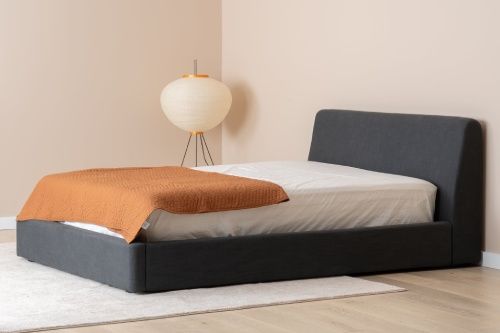 |
|
Wardrobe |
A tall cupboard for storing clothes. |
 |
|
Curtain |
A piece of fabric used to cover windows for privacy or decoration. |
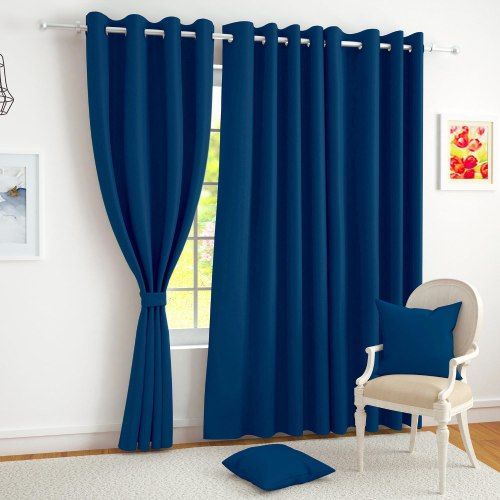 |
|
Kettle |
An electric or stovetop container used to boil water. |
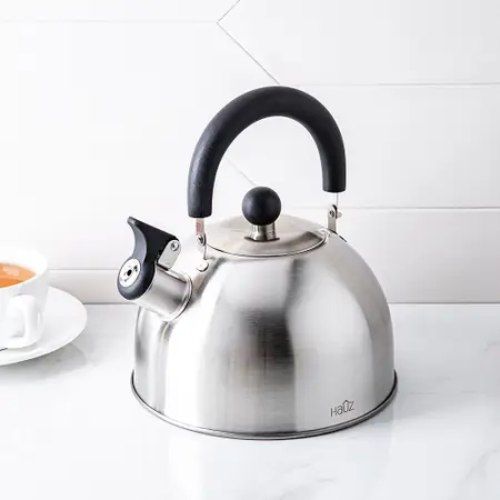 |
|
Bookshelf |
A piece of furniture with horizontal shelves for storing books. |
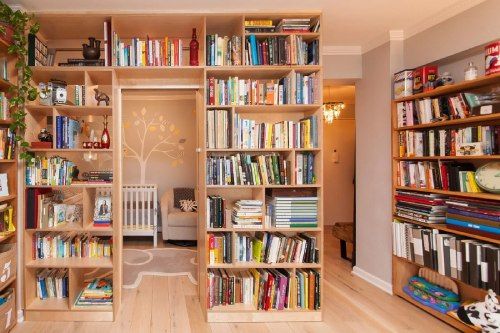 |
|
Sofa |
A comfortable seat with a back and arms for two or more people. |
 |
|
Dining table |
A table where people sit to eat meals. |
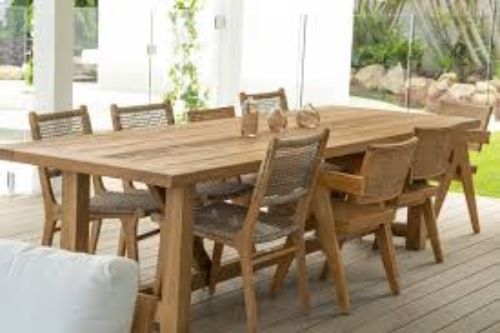 |
|
Fridge |
An appliance that keeps food and drinks cold. |
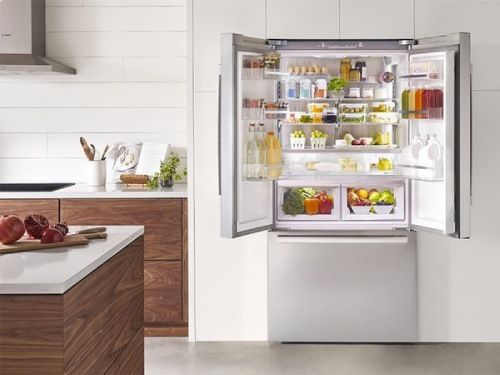 |
|
Lamp |
A device that provides artificial light. |
 |
Example Sentences
- I usually leave my phone on the bed before going to sleep.
- She keeps all her clothes neatly in the wardrobe.
- We opened the curtains to let in the sunlight.
- I use an electric kettle every morning to boil water for tea.
4. Verbs and phrases to describe living spaces
To communicate naturally about your home or living situation, it’s important to know not just nouns, but also action verbs and phrases related to housing. These are especially useful in speaking and writing tasks where you need to talk about your living arrangements, experiences with renting, or opinions about types of homes.
Common Verbs and Phrases
|
Phrase / Verb |
Meaning / Usage |
Illustrative images |
|
rent a house |
Pay money regularly to live in someone else's house |
 |
|
move out |
Leave your current place of living |
 |
|
share a flat |
Live with another person in the same apartment |
 |
|
live on your own |
Live independently, without roommates or family |
 |
|
sign a lease |
Agree to a rental contract legally |
 |
|
pay the rent |
Transfer money to your landlord each month |
 |
|
look for housing |
Search for a place to live |
 |
|
settle into a place |
Start feeling comfortable in your new home |
 |
|
decorate a room |
Add furniture, paint, or items to make a room more personal |
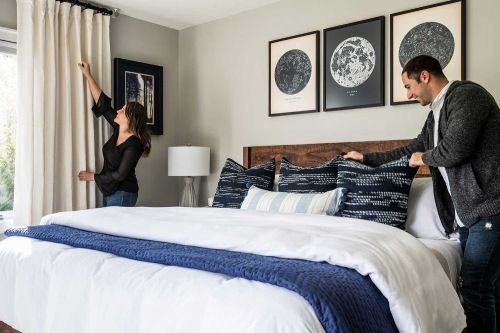 |
Example Sentences
- I'm planning to rent a house near my new office.
- After university, she decided to move out and find her own place.
- We share a flat to save on housing costs.
- He prefers to live on his own because he enjoys privacy.
III. Housing Vocabulary for IELTS Speaking and Writing
The topic of housing frequently appears in both the Speaking and Writing tasks of the IELTS exam. Whether you're describing your living space, discussing housing problems, or expressing opinions about urban development, using precise and appropriate housing vocabulary can help boost your Lexical Resource score—one of the four key marking criteria.
Below are ideas and vocabulary you can apply effectively in each skill.
IELTS Speaking: Common housing topics and useful phrases
In Speaking Part 1, you may be asked about your living situation, home preferences, or neighborhood. In Parts 2 and 3, questions often focus on housing trends, city life vs. countryside, or ideal homes.
Sample Topics:
- Do you live in a house or apartment?
- Describe your home.
- What kind of housing is popular in your country?
- Would you rather live in the city or the suburbs?
Useful Phrases:
- “I currently live in a small apartment located on the top floor.”
- “My neighborhood is quite peaceful and family-friendly.”
- “The biggest drawback of my home is the lack of natural light.”
- “If I could, I would move to a detached house with a garden.”
Tip: Include adjectives and phrases that add detail. For example:
- Spacious, cozy, well-furnished, centrally located
- Open-plan layout, built-in storage, modern kitchen
IELTS Writing Task 1 and 2: Academic use of housing vocabulary
Task 1 (General/Academic) may refer to accommodation in charts (e.g., housing types, urban population growth).
Task 2 essays often cover:
- Housing shortages
- Advantages of renting vs. owning property
- Urban sprawl and housing development
Academic Vocabulary & Collocations:
- affordable housing
- housing crisis
- property market
- residential area
- urban vs. rural housing
- renting a property vs. buying a home
Sample sentence for Writing Task 2: “Governments should invest more in affordable housing projects to meet the needs of low-income families in urban areas.”
Tip: Use formal tone with topic-specific vocabulary and support your arguments with data or examples when possible.
IV. Advanced Housing-Related Phrases and Idioms
To achieve a higher band score or speak/writer more fluently, you’ll need more than basic vocabulary. Native-level communication often includes idioms, phrasal verbs, and collocations that relate to housing and home life. These expressions can help you sound more natural and nuanced, especially in formal and informal speaking or writing situations
Idioms and Fixed Expressions
|
Idiom / Phrase |
Meaning |
Example Usage |
|
Home sweet home |
Feeling happy and comfortable to be back home |
After a long trip, I walked in and thought, “Home sweet home.” |
|
Get on the property ladder |
Buy your first house or apartment |
Many young people struggle to get on the property ladder. |
|
There’s no place like home |
Nowhere else feels as good as your own home |
I enjoyed my vacation, but there’s no place like home. |
|
Downsize (your home) |
Move to a smaller place, often due to cost or age |
After retirement, they decided to downsize to a small flat. |
|
Under one roof |
In the same house/location |
Our whole extended family lives under one roof. |
Phrasal Verbs and Collocations
|
Expression |
Meaning / Use |
Example |
|
Move in / Move out |
Start or stop living in a home |
I moved out of my parents’ house last year. |
|
Pay off a mortgage |
Finish paying the loan used to buy a home |
They finally paid off their mortgage after 20 years. |
|
Live rent-free |
Live somewhere without paying rent |
He’s currently living rent-free in his aunt’s apartment. |
|
Put your house on the market |
Try to sell your home |
They put their house on the market last month. |
|
House-hunting |
Looking for a house to buy or rent |
They’ve been house-hunting for three weeks. |
Tips for Using Advanced Language
- Only use idioms or phrasal verbs if you’re confident about their meaning. Forced use can sound unnatural.
- Avoid informal idioms (home sweet home) in IELTS Writing Task 2, but they are acceptable in Speaking Part 1 or 2.
- Focus on clarity first—advanced vocabulary is a bonus, not a replacement for correct grammar.
V. Start Your IELTS Journey
PREP hopes this article has helped you expand your English housing vocabulary, as well as distinguish between house types and house furnishings in English. If your goal is to achieve a Band 7 or higher, these IELTS resources are for you:
👉 IELTS preparation: Mastering IELTS exam from zero to hero

Hi I'm Chloe, and I am currently serving as an Product Content Administrator at Prep Education. With over five years of experience in independent online IELTS study and exam preparation, I am confident in my ability to support learners in achieving their highest possible scores.
Comment
Premium content
View allPersonalized roadmap
Most read












